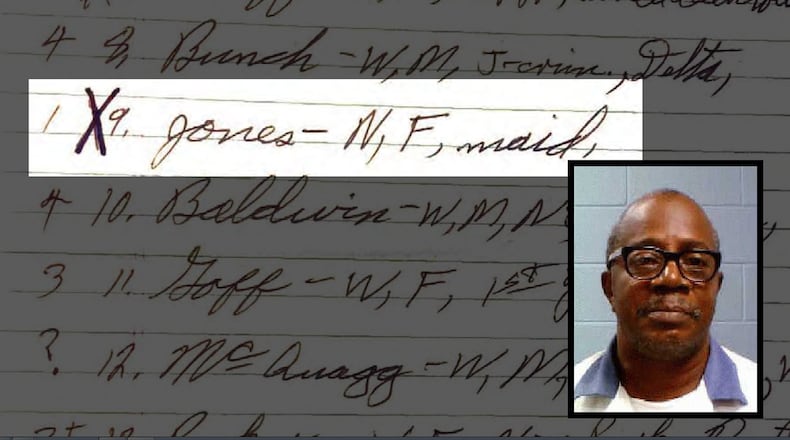A man who has spent 43 years in prison for the rape and murder of a 19-year-old Columbus woman is entitled to a new trial, the Georgia Supreme Court ruled.
In a 62-page opinion handed down Friday, the court ruled that Johnny Lee Gates could receive a different verdict if newly discovered DNA evidence is introduced.
That evidence — a bathrobe belt and four neckties used to bind Katharina Wright while she was raped and shot in the head in 1976 — was located in the Muscogee County District Attorney’s Office in 2015 and tested for DNA.
Though authorities said Gates acted alone, DNA samples found on the items did not match his.
Based on that evidence and the fact that prosecutors argued Gates was barehanded during the commission of the crime, the Muscogee County Superior Court granted him a new trial in January 2019.
That decision was upheld by the Supreme Court.
RELATED: Georgia justices consider whether new trial warranted for 1976 murder
Gates, who is black, was convicted in 1977 by an all-white jury and sentenced to death for the rape and murder of Wright, a German immigrant who had moved near Fort Benning with her soldier husband just 12 days before her death.
At the time of his conviction, Gates was 21 years old. He was charged after being identified in a lineup by one of Wright’s neighbors and ultimately signed a typewritten confession admitting guilt in the case.
During a subsequent walk-through of the apartment, Gates was recorded telling investigators that Wright gave him $480 in cash, which included “twenties, fives and ones.” Her husband, however, previously told Columbus detectives the money missing from underneath the couple’s mattress had been “all twenties.”
Gates appealed his sentence and conviction in October 1979, though both were upheld by the Georgia Supreme Court at the time. More than two decades later, in 2003, the state agreed to remove the possibility of the death penalty after a mistrial on the question of his intellectual disability. Gates was re-sentenced to life in prison without the possibility of parole.
In their decision released Friday, justices affirmed that “although the State presented strong evidence of Gates’ guilt, Gates could have much more effectively countered such evidence had he also been able to present the newly discovered DNA evidence.”
The court did not make a ruling on Gates’ claim that he should be entitled to a new trial because of racial discrimination during the jury selection.
In 2015, Muscogee County Senior Judge John Allen condemned the prosecution's tactics during jury selection, finding "undeniable" and "overwhelming" evidence of race discrimination.
Allen noted that prosecutors "clearly engaged in systematic exclusion of blacks during Gates' jury selection" to get an all-white jury. He also noted that the prosecution's own notes labeled prospective white jurors with a "W" and black jurors with an "N."
Credit: Muscogee County District Attorney’s Office
Credit: Muscogee County District Attorney’s Office
“In light of our determination ... that the trial court did not abuse its discretion in granting Gates a new trial on the basis of newly discovered DNA evidence, we need not address Gates’ claim ... that the trial court should have granted him a new trial on the basis of his claim regarding racial discrimination in jury selection,” Justice Charlie Bethel wrote. “Such claim is now moot.”
About the Author
The Latest
Featured




